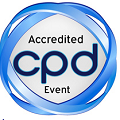
Recep Kesli
Afyon Kocatepe University, Turkey
Title: Antibiotic resistance profiles of non-fermentative Gram negative rods: Acinetoabacter spp., Pseudomonas spp., and Stenetrophomonas spp., in Kocatepe University Hospital, 2012-2015
Biography
Biography: Recep Kesli
Abstract
Background & Aim: Non-fermenting Gram negative bacteria are remarkable cause of antimicrobial resistance; propensity to cause outbreaks and complex epidemiology. It is important to have data about antimicrobial resistance for reducing morbidity and mortality.
The aim of this study was to evaluate susceptibility rates of non-fermentative bacteria isolated from various clinical specimens in Microbiology Laboratory, ANS Research and Practice Hospital, Afyon Kocatepe University, between October 2012 and September 2015.
Methods: Of the isolated from blood, urine, wound and sterile fluids 639 non-fermenting Gram negatives (NFGN), 477 (74.6%) were identified as Pseudomonas aeruginosa, 135 (21.1%) were Acinetobacter baumannii and 27 (4.3%) were Stenotrophomonas maltophilia. The isolates were identified by conventional methods and VITEK-2 automated identification system (bio-Mérieux, Marcy l’etoile,France). Antibiotic susceptibility tests were performed by the Kirby-Bauer disk-diffusion method according to the standards of Clinical and Laboratory Standards Institute (CLSI).
Results: Resistance rates of P. auriginosa was found as follows: Amikacin 32%, gentamicin 42%, imipenem 43%, merpenem 43%, ciprofloxacin 50%, levofloxacin 52%, cefepim 38%, ceftazidim 63%, piperacillin/tacobactam 85%, for Acinetobacter baumannii; Amikacin 53.3%, gentamicin 56.6%, imipenem 83%, meropenem 86%, ciprofloxacin 100%, ceftazidim 100%, piperacillin/tazobactam 85%, colistin 0% and for S. malthophilia, levofloxacin 66.6% and trimethoprim/sulfamethoxozole 0%.
Conclusions: Colistin was found as the most effective antibiotic against Pseudomonas and Acinetobacter strains and trimethoprim/ sulfamethoxozole was for the Stenotrophomonas.

